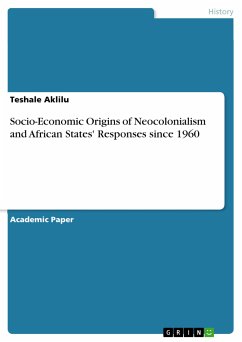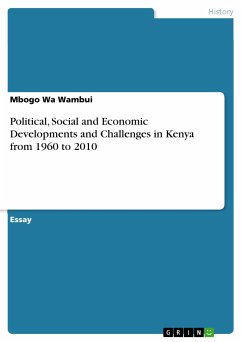Academic Paper from the year 2022 in the subject History - Africa, , language: English, abstract: This paper tries to show the socio-economic origins of neocolonialism and the African States' response since 1960. This research employs a qualitative study based on a careful examination of books, pertinent published journal articles, and other works that have been consulted, cross-checked, and reinterpreted. The outcome demonstrates that, since the 1960s, former colonial powers have sought to maintain their former position of agricultural product and raw material attachment with newly independent African states. Finally, some African state leaders, such as Nkrumah, Nyerere, Milton Obote, and others, provided an exemplary response to the expansion of neocolonialist powers in Africa by focusing on a thorough explanation of dependency theory and advising African leaders to fight neocolonialists in the economic sphere, and they began cooperation by holding conferences and signing an agreement to combat neocolonialism.
Dieser Download kann aus rechtlichen Gründen nur mit Rechnungsadresse in A, B, BG, CY, CZ, D, DK, EW, E, FIN, F, GR, HR, H, IRL, I, LT, L, LR, M, NL, PL, P, R, S, SLO, SK ausgeliefert werden.









